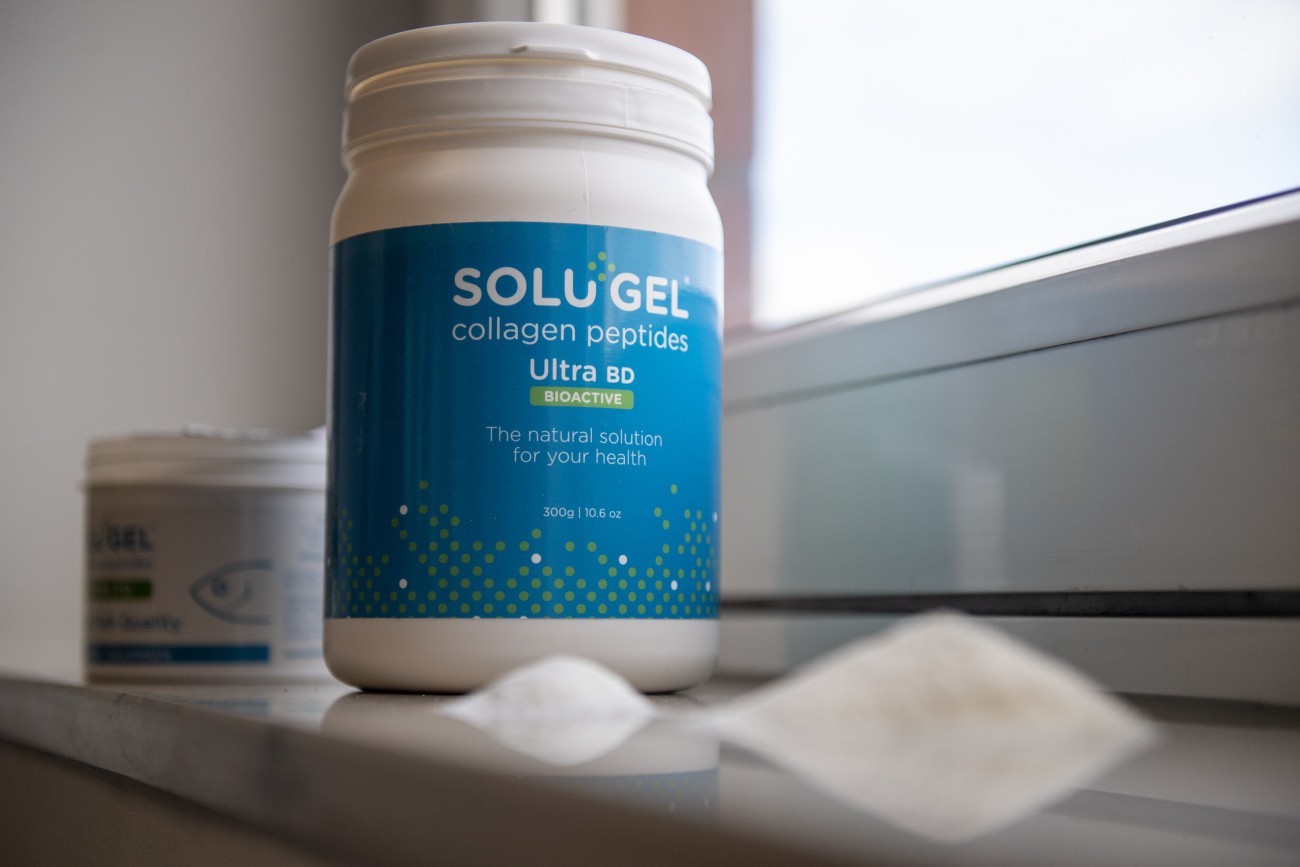

Adapting traditional knowledge about collagen to modern-day life

Our forefathers have long known the benefits of collagen, does modern science understand exactly how it works?
- this article is only available in English -
Yingying: "I wouldn't say exactly, but a lot of research, including our own, has been focused on establishing scientific support for these ancient beliefs, and identifying the physiological mechanisms at work. There are basically two hypotheses that explain the beneficial effects of collagen peptides. One is that they serve as a building block, they provide the amino acids that the body can turn into proteins. The other is that specific amino acids and also bioactive peptides that are only present in collagen have a signalling effect.They signal to the body's cells that there is too much breakdown of collagen and it needs to replace it and produce more. And to truly understand these mechanisms and prove that they actually lead to health benefits we conduct clinical studies.
For instance we have recently, together with Florida State University, concluded a clinical study that proves that daily intake of 10g SOLUGEL® collagen peptides, after six months significantly reduces joint pain in active adults who exercise regularly and suffer from some degree of joint pain. That touches on another area where we have also done a lot of research: how to make collagen peptides suited for incorporation into a daily diet. In the early days the technology was still quite basic. The collagen peptides obtained did not have the required physical properties: it wasn't neutral in smell and taste, and couldn't be dissolved in a cup of coffee or fruit juice. We have made great strides in that respect and have raised our standard for the quality, purity, stability and composition of our products. On top of that, we have different variants developed specifically for different applications like beverages or bars for example."

How has your IP strategy supported the innovations in developing collagen peptides for the health and nutrition markets?
Edith: "Essentially we have to make sure that our IP strategy is aligned with our business strategy. We typically harvest inventions and decide which patents to pursue by aligning the fruits of our research and development projects with their commercial and strategic value. We make sure that we protect our innovations by filing the appropriate patents and trademarks timely in the countries that are important to us. We need to ensure as well that our business has the necessary freedom to operate. That may sound generic, but here especially the cooperation with NLO team is valuable. As an in-house patent attorney you have to be really integrated in the business, have an eye for strategic IP opportunities, advocate the value of intellectual property and manage the complete patent portfolio with strategic insight. That can leave little time for focusing on work like drafting and prosecuting patents.” Dela: “So it's good to be able to call on outside help from people who are very knowledgeable about our business and our specific field of biotechnology. We can delegate some of that drafting and prosecution work and brainstorm together on the best strategy that will give us the broadest protection with the NLO team. Our IP strategy gives us the position and the tools we need in discussions with our customers and suppliers, which enables us to create alliances and partnerships that further improve our business.” Edith: “We also act against trademark infringements, for example when manufacturers label SOLUGEL® as an ingredient, when they are actually not using our product. When that happens, we do act against such unauthorized uses."

How do you monitor in practice if such infringements occur?
Dela: "That can be a challenge sometimes. The key part is to communicate well within the business about the essence and scope of the patents and other IP rights we hold." Edith: “That means explaining very tangibly to non-IP specialists which products and processes are covered by our patents. This helps our commercial and technical people on the ground to keep their eyes open and recognize potential infringements by other companies.” Dela: “And when they encounter situations like that, they know it's important to report those internally so that we can follow-up. We hold training sessions with our sales representatives from all over the world to get this information across and increase their awareness of the importance of protecting and defending our IP."
What IP exactly do you protect?
Dela: "We have built a portfolio of several patent families. One patent for example covers our collagen peptide that we market under the SOLUGEL® brand. It has an exceptionally high speed of dissolution in water, and we have been able to patent both this unique property of the product as well as the technical step in the manufacturing process responsible for it." Yingying: "The SOLUGEL® trademark itself is also very important for us. It has become such a well-known brand in the market that some customers do co-branding with us and feature SOLUGEL® as a branded ingredient. Co-branding helps to increase trust among consumers as they recognize that a key ingredient is sourced from a reputable and trustworthy supplier."

How about health claims, to what extent are you able to protect those?
Yingying: "There is a patent side and a regulatory side to that question. In general when you have reasonable evidence that your product or ingredient causes a specific health effect, you can claim that in a patent. From a regulatory point of view however health claims for ingredients are in general not granted by the European Food Safety Authority [EFSA]. In Europe, most granted health claims are given to ingredients such as vitamins and minerals. So, unfortunately for us and our customers, we cannot put any health claims on the packaging and labels for the products that include our ingredients. That said, there are ways to communicate to consumers about the health benefits of collagen. Scientific publications are one powerful way, and also professionals like doctors, dieticians, dermatologists and physiotherapists can bring those messages, all of course within the framework of what regulations allow. As PB Leiner we don't want people making bogus claims about everything that collagen can do, because there have, for instance, been scandals in China around that. We only want to say things about the health effects of collagen that are responsible, and we don't want to say anything that is not well established or substantiated."

Your collagen peptide ingredient is aimed at consumers with lifestyles where health and nutrition play important roles, the same consumer segment that increasingly prefers vegan food. Are vegan alternatives for collagen a threat to your business?
Yingying: "It is very difficult to make a vegan alternative with properties similar to those of collagen.
To begin with, certain amino acids can only be obtained naturally from collagen such as hydroxyproline, so it's very difficult to create the full amino acid profile found in collagen. What’s more, the abundant bioactive peptides in collagen marks the unique properties which are hard to copy. There are platforms and technologies under development that aim to mimic this, but these are far from mature today. Some companies use fermentation technology to build a full amino acid profile, others create a blend of amino acids that are synthetically made in a lab. The taste and smell of those amino acid soups are far from neutral, actually they are very bad. The technology that aim to mimic collagen peptides structures are even more challenging to master and scale up. On top of that they will face regulatory barriers. Their alternatives may be seen as novel food ingredients that will have to go through a lengthy application process to prove safety and toxicity aspects and health claims. It's difficult to predict the future, but today these companies are very small in scale and very far from commercialization." Dela: "We have mainly talked about the collagen business, but on the gelatin side there is much innovation going on as well. TEXTURA™, our 'instant gelatin' for example that, unlike traditional gelatin leaves, is soluble in water at room temperature. Another example is the more sustainable manufacturing processes that we have developed and filed patents on as well, which enables higher product recovery and reduced process water consumption. It's really fascinating to see that even in an industry that to outsiders may seem very old, new inventions are always around the corner."
